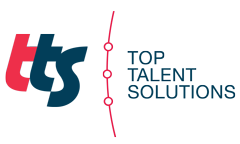TTS presented their third full-day conference from 14 – 16 September this year. The conference titled “The Fourth Industrial Revolution: Technology and People Assessment “, focused on equipping delegates to face the challenges of the future with regards to technology and people assessments. The conference kicked off with an interactive workshop for the TTS partners on day one, followed by a full-day conference with informative presentations that ranged from the newest technology in assessments and intelligent reporting to TTS clients sharing their success stories. On the last day of the conference, in collaboration with Dr Caligiuri from the North-Eastern University and TASCA Global, a half-day Cultural Agility workshop was conducted.
The second day of the conference started with a session headed by a panel of experts from multi-national companies on the implementation of a group wide assessment strategy. The session covered the design principles and assessment practice maturity framework, learnings from assessment strategy implementations and the importance of stakeholder buy-in in a process. It also covered important aspects in the management of change that occurs as a result of the implementation of an assessment strategy. Following this was a presentation of client, Amplats, success story. This story focused on how to take stock of the skills and capabilities in a talent pool, approach assessments in the current volatile and ambiguous business environment, make best use of data to inform and execute a talent strategy. The presentation also displayed how TTS partners with organisations in order to ensure successful implementation.
Renier Lewis, CIO of TTS shared with the audience the new trends in assessment technology. His presentation specifically focused on artificial intelligence and gamification, new assessment applications for mobile devices and the use of predictive analytics. This was followed by RCL Foods’ success story, which highlighted the steps involved in the successful execution of a large scale 360 project. The presentation identified behavioural assets and liabilities and highlighted how to maintain high levels of flexibility. It also emphasised the importance of carefully planning the detail of a project and the creative design in order to facilitate the flexible deployment of a 360 project. Dr Caligiuri then provided a brief overview of the critical workforce competency in today’s multinational organisations, Cultural Agility in the next presentation. This session focused on how to identify employees for the globalised world of today. Dr Caligiuri stated that the success in business today is a function of professionals who have the ability to operate effectively in intercultural and multicultural situations, individuals who are cultural agile.
Fred Guest, MD of TTS introduced the concept of intelligent reporting to address the potential needs or requirements of organisations. The session focused on the dilemmas of integrated reporting and the principles involved in data integration and the use of data to report on multiple areas. Prof Kriek, CEO of TTS, finished off the day with a facilitated session regarding assessment feedback in 2030. During the session delegates discussed possibilities and client/employee needs with regards to feedback and the future implementation thereof.
The TTS conference concluded on Friday the 16th of September with a facilitated workshop presented by Dr Caligiuri on how to assess and develop Culturally Agile professionals. The session’s focus was threefold, highlighting the concept of Cultural Agility, the Cultural Agility assessment and the use of the assessment for selection, training and development purposes. Furthermore, Dr Caliguiri and Prof Kriek shared client examples and how TTS can assist professionals in the assessment and development of Cultural Agile individuals.

